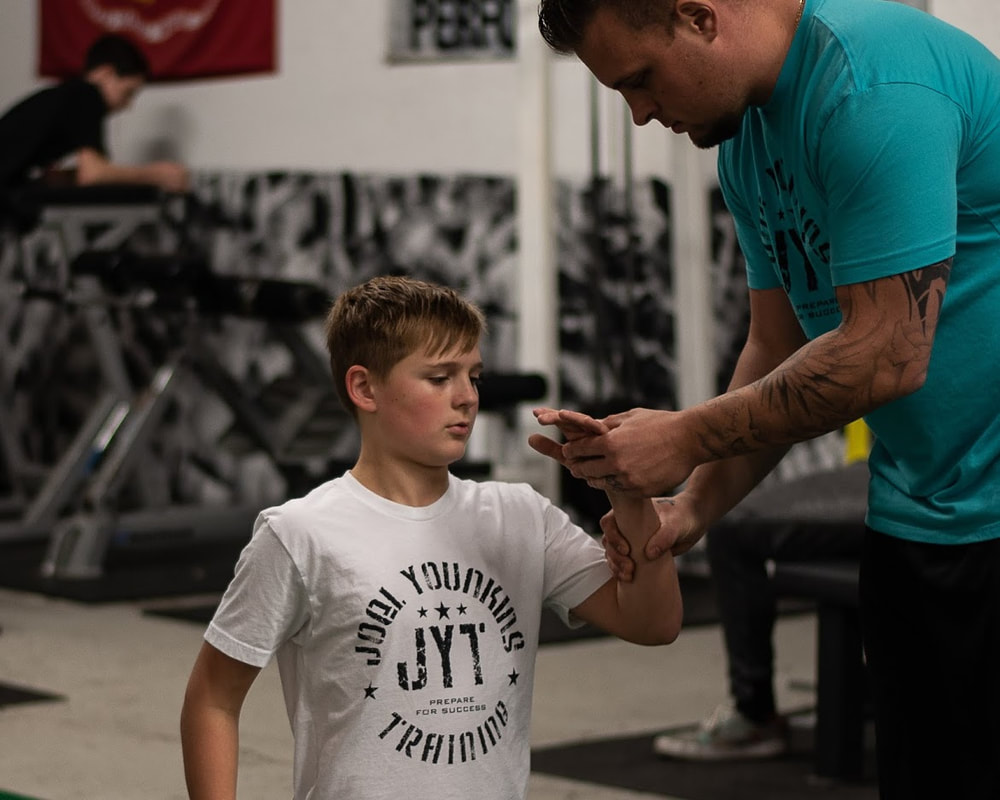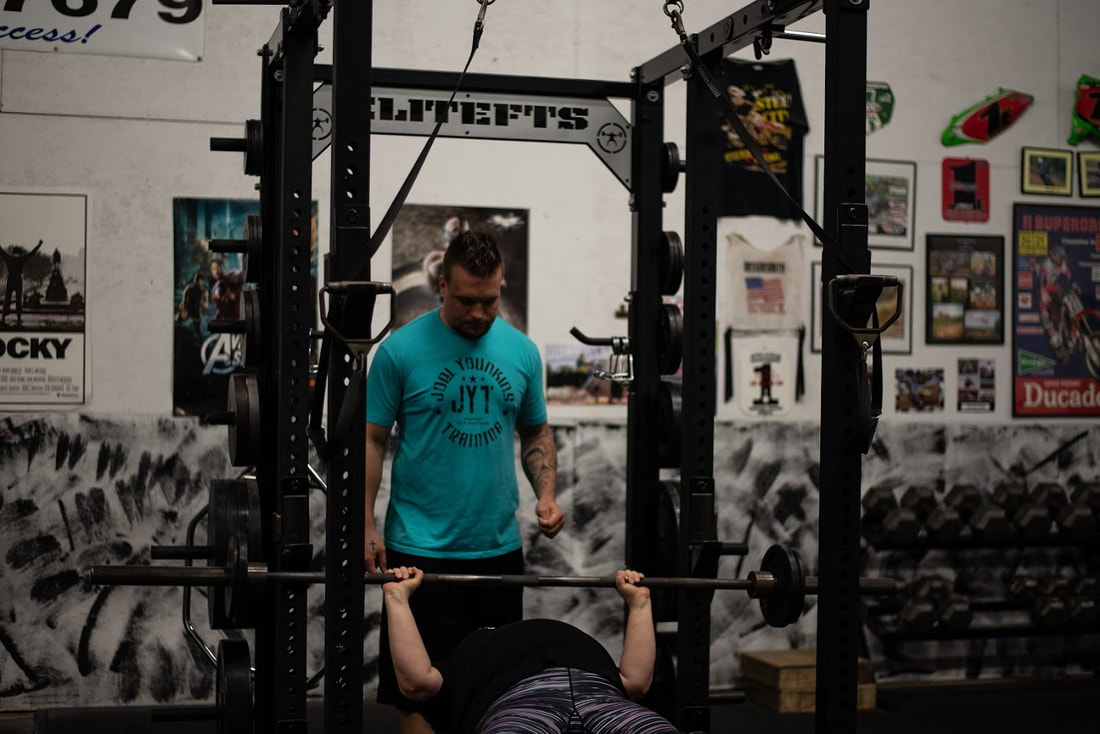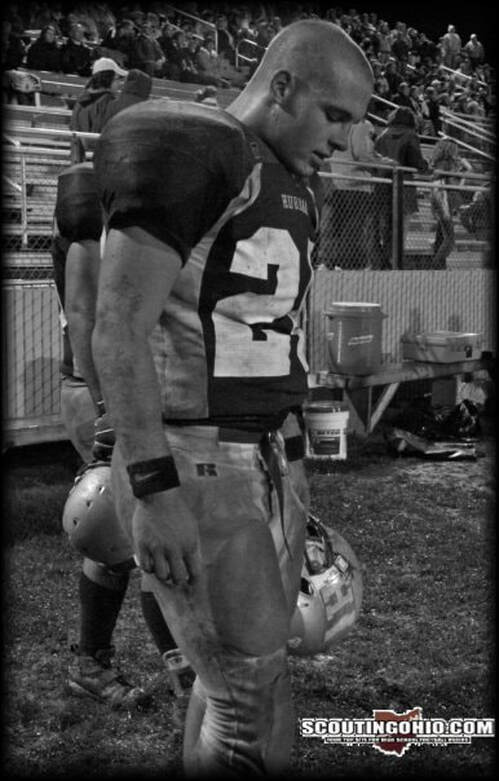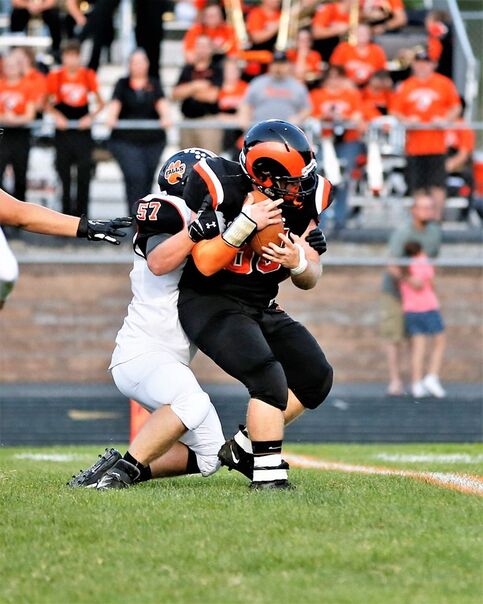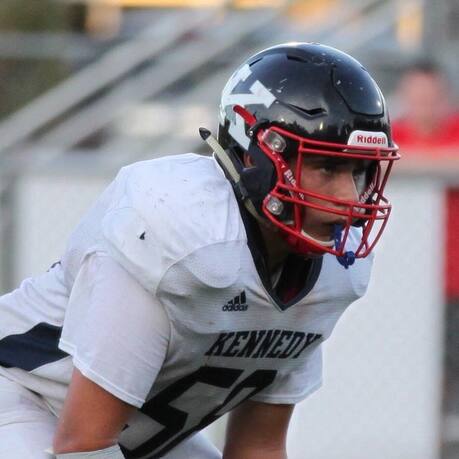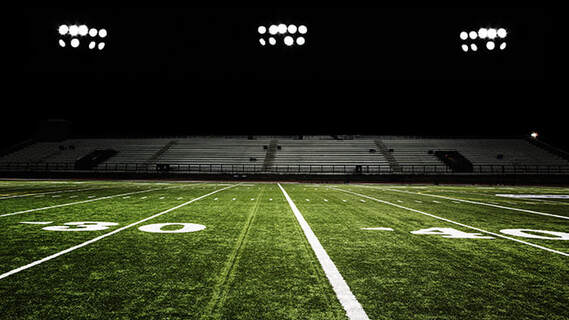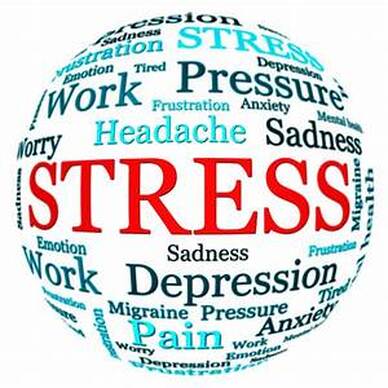|
Joel Younkins It is 2020, and by now all athletes, sport coaches, and parents should realize there is an importance to Strength & Conditioning Training Programs for all athletes. More and more people are getting excited about discussing and recognizing the importance of training, and for me I think that's totally cool!! Because in order to compete at your highest level, your body must be prepared and physically developed to maximize your physical skill sets as athlete. More and more athletes are training and preparing their bodies during their off season. If you're an athlete who is not training, you are slowly getting left behind as more and more athletes are understanding the advantages of physical athletic performance! As a Physical Prep Coach, the tricky part to all of this is to provide athletes a product that is very beneficial to them. When athletes take the field, court, or track, often times other variables can mask poor training programs. A couple things that could cause this could be...
I honestly believe that well over 95% of sport coaches, parents, and even the athletes do not know how to decipher if a training program is actually appropriate nor are able to identify the pro's and con's of it as well. And this is the main reason why I am writing this Lifestyle Blog! I want to break down three different styles of Training Programs that are typically prescribed for athletes to improve in their respective sport(s). These are different general approaches that I tend to see. I'll describe what they look like, and I'll outline the benefits and the drawbacks of each of them. The names that I will be providing for them, is not technically their universal names, just what I (and maybe other coaches) identify them to be called. 1.) The Busy Work Training Program This is a very popular style of training program among Junior High and High School Athletes. You may see these in health club programs or even be done at the high school as a form of "speed work." These types of programs usually give the athletes a lot of different movement type drills. You may see a lot speed ladders, athletes pulling each other around with bands, and some random cones drills that athletes will be running around. The athletes are usually tired after these types of workouts, they're sweating, and if you were to watch them, it looks like they're getting a lot of work done because you'll see a bunch of movement happening. The Benefits
The Drawbacks
The Busy Work Training Programs have been popular for those who just want their athletes doing something. Or sometimes a certain former high level athlete now runs these groups and it attracts athletes in that way. The athletes get tired and a good sweat, so coaches and parents find that appealing. All the while, these workouts provide very limited benefits when trying to increase athletic performance! 2.) The Weights Only Training Program This training program has been made popular by high school football programs for the last 5 or so decades. And there is a ton of benefits from Strength Training and developing athletic performance! But it's not the end all be all. It's so common to hear the words "hit/hitting the weight room" by coaches, announcers, and athletes in general. And the focus of these training programs are simply to only lift weights for months at a time until it's time to start running just a couple weeks before practice starts. I'm a huge proponent for making athletes stronger, but these programs are almost always built around the belief that if the weight room max numbers improve, it means their performance on the field will improve. And while yes, getting stronger helps a lot of things, there's so much left on the table that an athlete needs beyond just increased strength levels inside of the weight room. And while strength training is a beautiful thing in athletic development, too often it is abused and athletes get rushed into too much volume and intensity before they are ready. This happens in the group of coaches that just rely on max out numbers to be the superior objective in the off season weight lifting programs. I can't tell you how many times that a parent has told me how frustrated they were that their son/daughter went to the high school weight room the first day and they were asked to max out while never touching a weight in their life. Or even more challenging, a similar athlete being asked to perform Hang Cleans and Snatches (highly technical Olympic Lifts) on their first day ever of training. This in of itself serves multiple problems, both short and long term. If you're not connecting the dots right now how this isn't wise, please feel free to reach out to me and we can discuss the limitations for this. The Benefits
The Drawbacks
Strength Training is a beautiful thing, but it's not the only thing in building athletic performance. By increasing just strength in the weight room may be great to get stronger, add muscles mass, and building team unity, a host of problems can later arise for athletes. And for the crowd out there that says, hit the weight room and go do speed training for extra work, that also provides it's own drawbacks. We'll cover this more in number 3... 3.) The Holistic Training Program This type of training program is probably the most unpopular here in America, but a lot of coaches/trainers are now seeing the light! Many other parts of the world have been developing their athletes with this approach for a long time. And they have been taking much smaller populations and still competing with the melting pot of the USA in the Olympics. This is the style of approach that I coach with at my training facility because it delivers that best impact for developing athletes and actually improving their physical performance on the field, court, or track! This style of training program recognizes many different training abilities. For example, movement quality, strength, power, speed, aerobic conditioning, mobility, and flexibility. And not only are they recognized, but they are all trained together in unison so that these abilities actually help manipulate to help stimulate growth in all facets of training. That's why I call it a "Holistic Training Program" because it's interconnecting all the parts of athletic development, instead of the standard compartmentalized approach of where athletes tend to get passed off from one objective to the other. So that may seem like a lot to take in. And to be honest, it is. But I want to cover one primary example how this actually applies in real world situations. You know how I said, athletes could do weight room work one day, and do speed training the next (compartmentalized)? This could easily happen in a program where on Mondays, athletes perform heavy squat work, and on Tuesday, they go with the track/speed coach to do speed training work. Even if both days, the programs are done correctly, you'll have heavy interference with the speed training workout due to heavy fatigue from Monday's Squat workouts. And it will cause athletes to run slower, sacrifice mechanics, increase training injury rates, and not maximizing the speed work. If this is done over and over, you could potentially and probably will make an athlete slower, especially if you're dealing with a non beginner athlete! The Holistic workouts are slower paced. Emphasis on recovery periods, quality of movement, and sub-maximal strength work, could make the workout look slow paced and almost as if the athletes are not trying as hard compared to The Busy Work Training Program. But you'll see various speed work drills, jumping exercises, throwing exercises, possible some Olympic lift variations. You'll also see some Squat, Bench, and Deadlift variations that are focused with technique building the strength, not loading the bar up just because. You'll see some assistance style exercises to build up weak areas and to keep the body "balanced." Conditioning protocols will be in place as well over the course of the week, even if you're months out from training camp. And you will see emphasis on stretching and mobility work too! It may sound like a lot is going on, and there is a lot of be factored into producing a program like this. It takes many hours and years of coaching to truly understand how all of this fits together in different populations, time of the year, and the types of athletes. Small tweaks can be made to make huge adjustments for different levels and types of athletes! The Benefits
The Drawbacks
This is my preferred style of Training Program for athletes to follow. The training is designed for the athlete to physically peak on the field, court, or track and not leave their best performances during training. This help improve their ability to move efficiently, builds speed, power, and strength while not having to rush anything to give these athletes these benefits! Conclusion These different style of Training Programs are just different categories that I've created for you so that you can help wrap your head around the different approaches out there. All 3 have their added benefits, and they all have their drawbacks too. The goal for this was to simply educate you on the differences of these styles so that you can have a better understanding of what you may be seeing. Even though I may be biased following what I call the Holistic Training Program, I do appreciate a constant up-rise towards better developing athletes. I considered this Blog post, my contribution to help further educate athletes, coaches, and parents on the different styles of training approaches that are being used to physically develop athletes. Training is not a one size fits all approach and not all training programs are created equal!
0 Comments
Joel Younkins The idea of TRAINING HARD is a very vague concept. We hear this being thrown around quite often in this industry. Heck, I've said it a million times and I'll say it a million more. I have my definition of it, in which I'll explain very soon! "To get good results you gotta train hard!" "If you want to win the championship, you gotta train hard!" "To have the body you always wanted, you gotta train hard!" But what is TRAINING HARD??? Have you ever really asked yourself that question? Here's what most people think it is, including myself before I got into coaching and actually learned what real training was! Most people think TRAINING HARD, is training more than everyone else and giving it your all every single time. And this sounds really cool, and maybe it paints a Rocky Training Montage in your head right now. You can hear the Hearts on Fire song playing in your head... But this actually couldn't be further from the truth! People come in to meet with me to get started training. And more than half of them say things like... "I'm ready for you to kick my butt!" "Make sure you work my child hard to get them in shape!" "I can't wait to be sore!" I hear these types of comments so much that it's funny to me that people seem to be more conditioned to say that want to be tortured more than they want results LOL. I swear it feels like I hear more about pain and suffering than I hear things like... "Joel, I can't wait to get the same training results like so and so did!" So I suppose I really shouldn't be surprised that most people think TRAINING HARD is to just keep adding more time training and more intensity... But here is what I've learned about training the human body and what actually produces awesome results! TRAINING HARD in my opinion, is being able to train with a planned intensity for each workout, consistently over a long period of time. For each workout, you should have certain objectives and goals for what you're doing. Some workouts are designed to build more Volume. Some are designed to build more Intensity. And some workouts are designed to stimulate Recovery. And many more objectives can be included!
Executing the plan means executing your recovery sessions and your off days too...This is part of TRAINING HARD! So, if you're showing up to your workouts, and you're supposed to be given it max effort, and you can't because you've trained vigorously the past 6 days...Then in my opinion, you're not TRAINING HARD. If you're supposed to be performing a recovery workout, and instead you just try to do another tough workout, in my opinion, that's not TRAINING HARD either! What most people think is TRAINING HARD, I call Training Recklessly! I can go on and on about this topic and how it relates to so many avenues of training for different populations and goals. But I want to leave you with 3 main takeaways to ensure that YOU are TRAINING HARD and not recklessly!
TRAIN HARD!!! Your Coach -Joel Joel Younkins With the Super Bowl fast approaching, I got to thinking about some Football. I've had this conversation in my head a million times, what would I do if I was in charge of a Football Program, more specifically a High School Football Program? What changes would I make to the traditional High School Football Program Protocols? Knowing what I know about training athletes as a Physical Preparation Coach, could I find areas to improve upon to build better systems? I've spun this around in my head many times before and now I'm sharing this with you. This is how I'd prepare the team in the eyes of a Physical Preparation Coach! This is all hypothetical and also as general as it gets, but read along and you'll see how some small adjustments, could go a long ways in improving player performance. What I'll be discussing in this Lifestyle Blog will be things I would change to help increase physical playing performances, most specifically under the Friday Night Lights! I won't be talking about which style of Offense I'd run, which coverage we'd be in on 3rd in long, or which play I'd call on 4th goal on the 1 yard line. I could tell you those, but I would be speaking from an unqualified angle. So I'll stay in my lane and stick to the physical performance side of things... I want to share with you 3 Ideas that I would implement to help a High School Football Program improve playing performance. These are concepts and ideas that are coming straight from my world of Physical Preparation. I'm simply looking at Human Performance as I work through these ideas in my head. Again, these are general ideas for across the board for High School Football Programs! Let's check them out! 1.) I'd Reschedule Weekly Practice Schedules In my experience and current knowledge, majority of High School Football Programs practice Monday through Thursday, and play on Friday. Monday is usually a Walk Through style of practice, or at least an easier install day for the new week (if you lose, you'll probably do some punishment drills; another topic for another day). Tuesday and Wednesday are full pads and hard practices. And Thursday is a light practice to get game ready for Friday. This isn't necessarily a bad schedule, but I would tweak one thing around and elaborate on a couple things so that practices are structured with the idea in mind to improve Friday Night playing performance! I would first make my schedule like this... Monday - Hard Practice Tuesday - Light Practice Wednesday - Hard Practice Thursday - Light Practice Friday - Game Day: Friday Night Lights Saturday - Recovery/Film Sunday - Off What I call a "Hard Day," I'm referring to a practice built around playing at FULL SPEED reps! I would give the athletes optimal rest periods so that they can actually RUN/MOVE AS FAST AS POSSIBLE every single rep during practice. We would focus more on Group and Team Sessions and emphasizing playing at full speed and executing like it's Friday Night. The goal would be to keep these practices short and sweet. Get in and get out. We could also schedule an In-Season Strength Training Program after these practices to maximize the Hard Day element by placing hardest stress variables on these days (this is another topic in of itself). The weight room workouts would be built around maintaining muscle strength and size but being friendly to the legs during the season. What I call a "Light Day" for the Tuesday practice would be a day where the team focuses more on Individual Drills (drills that relate to Football Skills, more on this another day possibly), and a lot of teaching opportunities and things to clean up from Mondays practice heading into Wednesdays practice. A Tuesday night film session would be great post practice addition in this schedule! At first glance, a coach may not be ideal to this type of practice, but we're essentially just flipping that original Monday and Tuesday practice around. We're doing this because by Monday, your athletes should be ready to run again after nearing the 72 hour mark since the game was played. And Tuesday, the idea is to let the body/legs recover so that we can come back and go FULL SPEED again for another practice on Wednesday! Coaches love to stress, "practice how you're going to play," this model will help instill that reality during the week! Thursday, I would keep per usual with Pro Pads (helmets and shoulder pads) or Helmets only. This day would be a light day of course, but I'd focus on executing technique and player efficiency. I'd place position coaches on high demand that Thursdays, the players focus on position technique just as much as they would on what their responsibilities are! This practice should be short and no less than game situation rests between these plays. This is a light tune up practice, and it should look sharp and your athletes should be fresh after the practice. If it's done right, you're players should have more energy at the end of it than when they started. Any Coach who understands Speed Concepts knows that you cannot replicate true Speed Work two days in a row. And by manipulating this schedule like this, we now can have 2 true speed practices and 1 game. This also equates to a great plan to execute 3 days of High Intensity Speed Work, which is also important to understand in training athletes to be fast! By scheduling it this way, the athletes legs won't be dragging through the week and they will develop the ability to play as fast as they're meant to on Friday Night, if not faster than originally expected. The last thing you want is Football Athletes operating below 90% on Game Night. Anything below 90% is not considered their "A Game"... Saturday, we'd watch film and we would go through Mobility Drills and Stretching. The goal is to hit full range of motions and stretch to relax the muscles. Some light power speed drills could be done to circulate the blood through their bodies. Sunday is off and Monday we will be ready to practice again FAST! 2.) Build Off Season Preparation Around Speed In the first idea, you read a lot about Speed. And get ready, because that's all we're talking about for this one as well. All coaches love the idea of putting fast athletes on the field. Especially in today's age of style of football. But, I see Off-Season Programs built around Body Building style workouts to just "Get Big." And we even see Strongman type workouts or Military Workouts to build "team bonding" and "toughness." I'm sorry, but those team bonding and toughness activities won't do the team any good when the other team is smoking by our athletes because our athletes are tough in the winter, spring, and summer months but unfortunately slow in the fall months :( Running by pulling each other with bands, or throwing the foot ladder down on the ground to build "quick feet" isn't going to do the trick to create faster athletes! Athletes need to be taught how to sprint! Sprinting is a skill that needs to be taught. If a football program has a bad off season program, the best thing they can have at their disposal is a good track program and hope to god that all of the skill athletes go out for the track team. You may be asking, "Joel at your facility your athletes lift weights, this sounds different from what you do?" And I'd say, "yes we strength train because it is a part of Speed Training and we train it with the intent to produce faster and healthier athletes out of my facility!" And we also do Speed Training Drills and we pair it alongside Strength Training all year long. It just happens in certain progressions. Same concepts I'd bring to a Football Program. I'd be programming Sprint Work in often just like I do with my athletes. The team would perform Sprints, Jumps, and Throws for Dynamic Speed Work aka "Explosiveness." And we would utilize variations of Squats, Bench, Deadlift, Rows, and Ab Work as our primary focus to develop strength to create faster and healthier athletes! 3.) Totally Revamp Pre-Season Camp Schedule If you're still reading but you think I sound crazy so far, hang on tight for this one. It's about to get a lot worse for you... I'm not a fan nor comfortable of how August is handled for Football Teams. Two practices a day, 6 days a week. Everyday is basically a hard day of practice. And "camp legs" get created within days where it feels like you have 20 pound weights strapped to your legs...You better believe I'd do 3 things differently during camp for my athletes. I know this is going to make you nervous if you're a true die hard Football Enthusiast (I am one as well), but please read on if you want to see Fast Athletes take the field and win games! You're going to notice that in my way, there would be A LOT less Football Practicing than what we're used to seeing and understanding as normal...And in my world of developing and preparing athletes, Less in More is a very-very-very powerful tool to unlocking someones potential... Make no mistake about it, I love hard work, dedication, and consistency more than anyone else! But I also love producing amazing results too! You can still have your cake and eat it too by just pulling back a little, in order to get a lot more from your athletes! This should be the new standard of "trust the process." 1.) I would only practice once a day. If there is a second session, it would be a walk through session for teaching. 2.) You know my Hard/Light Schedule I had for the season? I'd do this for Camp too. 3 "Hard Days" and 3 "Light Days" on rotation. No two Hard Days back to back. 3.) Because we get to cut down on so much of practice, we can spend more time in the Film Room, Weight Room, and also adding in some Recovery Sessions during the week so that the players are fresh, healthy, and performing at Top Speeds throughout the Pre-Season Practices! Bonus: No end of practice sprints either. They shouldn't be needed when you have heavy concentrated loads of sport specific practice. Again this may sound so counterproductive right now in your mind. You're thinking, "how will we be in shape for the season? We can't let other teams outwork us!" "Trust the process" and read on... MAKE SURE YOU DON'T SKIP THIS PARAGRAPH: This is going to play out in our favor. While the other teams are "outworking our team" we will be fresh and fast while their kids are cramping and gassing out in the 3rd quarter. Our athletes will be "in shape" because we've been preparing to play at 90-100% while the other athletes from other programs are conditioning themselves to play at 60-90% during camp. When they're supposed to open it up and play, they're not conditioned to handle these outputs. Even worse, they're still going to be fatigued from their hard physically tough camp and won't be able to reach their full outputs until almost half of the season goes by. All across the board, many football teams do not look great until after Week 3. Like Vince Lombardi says, "Fatigue makes cowards of us all" and if our team comes out of camp fatigued and not prepared, the athletes WILL feel like cowards in the early weeks on the season with their bodies filled with fatigued from surviving camp! Conclusion By now, you can see that my changes would implement re-arranging and restructuring some elements in a Football Program. And I understand the resist that would be met originally with these ideas. That's because our eyes have got accustomed to watching football be done a certain way for so long. And these things aren't as visual to the traditional eye because almost every program is ran the same way, so we see the same results competing against each other every year. Make no mistake about it, these changes would make life easier on all parties. Athletes would be able to produce better performances when the lights come on and Coaches would be able to get more out of their athletes as well as get to coach even more teaching opportunities. And I know I discussed a lot about athletes playing faster on Friday Nights, but if we could help manage fatigue better, I truly believe a lot of injuries would be heavily reduced all across the board! Look, I grew up in North East Ohio, I still live here and if you look past some dwindling team numbers (at some schools) Football culture is just as strong as ever! We produce many great athletes out of this area as just as many elite coaches from this area too! This Lifestyle Blog was not meant to call out anyone, but instead realizing that almost every program is ran very similar to each others. It's a game built around tradition, in which I highly appreciate. But my goal moving forward is to challenge you to think outside of the box that football exists in and to see what other possibilities are available to produce even better and healthier athletes on Friday Nights! My goal is to only help make everyone else's jobs a little easier. Lets create an even better Football Tradition of High Performance! If you have any questions or would like to speak more with me about Football Preparation, please feel free to email me at [email protected] and we can discuss these details in much more in depth content! Joel Younkins Confidence is kind of weird thing huh? Sometimes it feels like one day we're on top of the world, and the next we're not so sure that our roots are deep enough in the soil to weather the storm. I'm highly suspicious, that no matter how confident you think a person is, that same person still struggles with their confidence going in and out at times. For example, I've been told a lot in the last handful of years in my life, that I seem like a very confident person. And for the most part, I think that's true. You have to be confident and believe in yourself to go out and create something to work for yourself. BUT, I too sometimes struggle with my own confidence. I understand what it feels like to be inside your own head asking questions like... "Am I good enough?" "Do people really value me?" "Am I really making an impact?" I started doing this self exercise only a couple months ago that really helps redirect my focus on where I'm trying to go. It's helped a lot and I do this daily, whether it's on days where my confidence is either high and days when it's low too. On days that it is high, it helps reassure that I'm capable of achieving my goals. On days that it's low, it helps bring up my confidence to where it needs to be. So what is this little exercise I've been doing? It's very easy to use, and anybody who has a goal or who is working on something can use it. All I do is say in my head... "I am a _______ Coach" I fill that blank space in with the specific goal that I'm trying to achieve. That's it, and it has really done wonders on directing and redirecting my confidence. I practice this daily so that I don't lose focus on just my goal, but always where my mindset is. I'm not a fan of the Fake It Till You Make It ideology, but I'm a fan of practice and prepare for you are working to become. I wanted to share this with you in this Lifestyle Blog, in case you feel like you need a little trick to help with some confidence building or just redirecting your mindset. Just say, "I am a (Insert Goal) (Title/Position/Person)" on a daily basis, and watch how you feel after you tell yourself this! Your Coach -Joel Joel Younkins I want you to know, that in this game of fitness, a lot of people really struggle. So many people go to gyms and either do the same thing every time, or they switch it up all of the time and see NO PROGRESS at all. And they do this for months and years at a time. This training stuff is very simple on the surface, but if you don't know how to play by the rules, it's going to be really hard to win... So what is my point in this Lifestyle Blog? What does this have to do with being greedy? My point is, if you're a client of mine and you're having success, or you're not and still finding success...I want to remind you, to just take the wins as they come! When you're winning with your fitness, you are building momentum. And a very easy way to crush this momentum, is to get greedy and want more and more to soon! For example, if your Bench Press PR (personal record) improves by 10lbs in 6 months. Be happy with that and keep doing what you're doing...Everything IS WORKING! Don't feel like it should've went up 15 or 20 pounds if you were giving it your best effort. For a lot of people, they can easily lose 10lbs off of their PR's in 6 months LOL. Another example would be fat loss. If you lose 5 pounds in a month, AWESOME! Keep doing what you're doing! Some people would kill just to lose 5lbs in general! Take the W and keep letting the results float in! "But why should you remain patient and not get greedy?" "Joel, shouldn't I be motivated to do my absolute best all of the time?!" YES! You should be, and if you're getting results and winning, that's exactly what YOU ARE doing because giving it your all, is a prerequisite to getting results. The results you're getting now, won't get much better by pushing to extreme levels. Remember extreme's don't last long...And when extreme things happen too often and too long...Things go wrong and they break down... Here's just a couple things that can go wrong for the people who get greedy in their training. 1.) They Get Hurt 2.) They Get Sick 3.) They Build a Toxic Relationship with Training and Nutrition...AKA it's a miserable chore. If you find yourself winning right now, keep going! Take the small wins a long the ways. You're in this rare boat of people finding continuous success from the gym. Not just these little spurts of success. Take your victories, be happy about them, and get back to work to get that next victory that is just around the corner! Your Coach -Joel Joel Younkins I know you've at least heard about Mental Toughness, or you have been exposed to this term at some point in your life. You may have heard things like... "That person is mentally tough, they never stop!" "You got to be mentally tough!" "The team that is more mentally tough, will be the team that wins!" Okay, so we've heard this before, but how do we build this umbrella mentality that so many people talk about? Most people associate Mental Toughness Development with doing things that make you suffer or uncomfortable, even if these things don't have any positive impact in your targeted goals. And because Mental Toughness is such a broad term, can you really measure the success of it? I get what people want to see out of a high performing individual when they say Mental Toughness. They want to see people who...
So, I have my philosophy on how to build this "Mental Toughness" that everyone likes to talk about that I want to share with you. My plan is very confusing so pay attention closely (sarcasm)... 1.) High Expectations If you expect yourself to do something a certain way all of the time, it's easier for that to be a reality to believe in yourself. Even when things get hard, you still believe because of your predetermined expectations that you've put on yourself. 2.) Consistency In your work/preparation, build consistency. This will make your performances more and more consistent. When consistency becomes more and more concrete for you, outside forces will have a harder time disrupting your consistent performances. 3.) Preparation Prepare Prepare Prepare. When you're prepared Physically, Technically, and Tactically, you are extremely difficult to beat! I 100% believe that building Mental Toughness is a slow process that is always on going by doing things right in your preparation. When you are preparing, keep your expectations high for yourself, be consistent in your preparation, and make sure when you are preparing, you are preparing for the right things that you'll be up against...When the time comes to shine, and you've been doing these three things very well, people will be saying that you're the one who is Mentally Tough! Talk soon! -Joel Thanks for reading and hope you found some great value! We have a favor to ask from you. We want to share our free content to help other people like yourself become more educated on fitness and wellness. Please take a moment to like and share the blog post on social media, tell a friend, and engage with the authors by commenting below and asking further questions. We thank you for the support and promise to keep over delivering you with more value! Joel Younkins I'm extremely confident that we're all familiar with stress. We've all experienced it on different levels and on different extremes. We stress about things like, dealing with your boss, dealing with a break up, being stuck in traffic, being mad at someone, etc. We also should realize that stress is a silent killer. Prolonged stress can lead to health conditions and diseases if not treated properly. You see, your body hates being stressed for long periods of time, this is when things start to break. Your body likes to operate in homeostasis, which is your "normal" functioning state. When chronic stress builds up for too long, bad things start to happen. Now, as you were reading that paragraph I hope that I didn't freak you out and make you think that your training is going to break you or give you a disease. There is also stress that we deal with that can be positive for us. Imagine riding a roller coaster; you're scared, nervous, and excited all at the same time. But it's over and done with in a short period. After the ride you feel more alive than ever because of the adrenaline rush. This is a positive stress experience! Training is simply applying a stress to your body, and planning to allow for a positive adaption to happen. We see the Bench Press as a Bench Press. Our bodies see it as something that is trying to kill us. So internally, things happen so that we can press the weight back up. After this stress response happens, the body will repair itself so that it will be prepared for this danger to happen again. This is how we get stronger and in better shape! How can this go wrong for us? I'm going to give you a few points on how this concept won't work for us if we screw this up...
So what do you need to do with this information? Good question! You need to realize that training is a stress and that you need to be able to positively respond to it. Here's a few key points to take away from all of this!
If you want more information, or want help with training, CLICK RIGHT HERE! Cheering for YOU! -Joel Thanks for reading and hope you found some great value! We have a favor to ask from you. We want to share our free content to help other people like yourself become more educated on fitness and wellness. Please take a moment to like and share the blog post on social media, tell a friend, and engage with the authors by commenting below and asking further questions. We thank you for the support and promise to keep over delivering you with more value! Joel Younkins Have you ever thought eating healthy was so much more expensive? Do you feel that way right now? Well if you said yes to either of these, I'm going to help you realize that this statement is very inaccurate. Before I explain to you why this isn't true, I'm going to first help you realize what healthy eating really is, because a lot of people don't really know what the concept eating healthy actually is. Eating healthy is eating whole foods, very few processed foods, and foods that are as close to their natural state as possible. We're eating Lean Protein, Clean Carbs, Healthy Fats, Fruits, and Vegetables. It's focusing on not neglecting any of these areas and eating till your full, not stuffed. Also, it's about eating enough to support your lifestyle and goals! Healthy eating is not...
Now, this is the point where we speak numbers and cost. First off, wherever you grocery shop, is up to you. Supporting your local butchers and local farmers will give you a great bang for your buck in regards to price to quality of food ratios. But as far as groceries stores go, I prefer to grocery shop at Aldi's. For 2 reasons... 1.) There's less choices of foods, so this makes for simpler decisions and less temptations in the store. 2.) You save a lot of money. I estimate that I save $400/month by shopping at Aldi's in comparison if I shopped at Giant Eagle every weekend. To bring in my point about this Lifestyle Blog, I wanted to give you some examples of some Healthy Foods that you can prepare in bulk that will cost you very little for yourself or even better for a family. These foods will be even cheaper than the dollar menu at Fast Food joints. So instead of comparing a bunch of things, I'm going to give you a few thoughts and you will see how non expensive healthy eating has to be.
Now, do you want to know what is really expensive?
I hope you can see that eating healthy doesn't have to be this crazy expensive journey that you have to go down. You don't even have to shop at high end grocery stores or food markets. You just need to be eating real foods. If your budget allows for organic, and you like organic products better, than that's fine. If you want to add some supplements like protein powder and a multi-vitamin (even though these are processed) that's fine too. But there's no need to go crazy. A recent meta-analysis says that eating healthy is only $1.50 more a day. And that's a small trade off for big results. And, I'm very confident that you could easily save a lot more money if you shopped correctly! Talk soon! Thanks for reading and hope you found some great value! We have a favor to ask from you. We want to share our free content to help other people like yourself become more educated on fitness and wellness. Please take a moment to like and share the blog post on social media, tell a friend, and engage with the authors by commenting below and asking further questions. We thank you for the support and promise to keep over delivering you with more value! Joel Younkins If you're familiar with JYT, it won't take long to realize that one of my niche clientele is Motocross and Offroad Racers. Since the beginning days of JYT, meaning my very first ever client being a Motocross Racer, I have worked with a lot Professional Racers and also very highly dedicated Amateur Racers as well. In this Lifestyle Blog, I'm going to share a few insights that I have gained throughout coaching these Professional Racers over the past 10 years. These pro's have been both Factory Riders as well as Privateer Riders. I spend more hours a week with these racers than you probably do with your best friend. And these same racers, I have worked with them for months to years on end. So I truly believe I get to have key insights to their careers. If you're a competitive racer, whether a beginner or someone not quite at that pro level yet, my goal is to give you some key insights on things that I've learned the pro's do, that maybe you can take away some value that you can imply into your very own racing program! 1.) They're Not Playing Any Games Elite racers only care about making progress to achieving their goals. Just like when you watch them race, they're full go and they bring that mentality to their preparation. Whether it's on their bike or for themselves, they are willing to make whatever changes necessary to see the results they want. The only X-Factor is, they have to believe in it first. Once they believe that something will help give them an advantage (whether it's right or wrong) they will fully be locked in on it. 2.) They Do Not Accept Unorganized Preparation One thing I've learned about Professional Racers, is when everything is a huge cluster heading into a race, they tend to stress out easily over these details. They expect themselves, their bike, and everyone else involved in their program to be ready to go well before they get to the race track. When things get pushed till last minute, you start to see anxiety levels rise in them, and you can see the frustration building when they feel like things are unorganized or being delayed. Some may take this is as them being dramatic (or whatever adjective people could use), but I see it as being a perfectionist and keeping expectations high. 3.) They Outsource What They Don't Know This one stems from #1, racers aren't afraid to ask for help when they know they need it. Whether it's hiring a Trainer, a Riding Coach, or seeking help to improve their bike, they're open for help and opinions to better their career. Most of the time, they're not worried about their pride and they are more concerned with their results. They know they do not have all the answers but are willing to find those who do. 4.) They Practice As Much As Possible Pro Racers practice a lot. And a lot depends on who you're talking about if you're expecting me to throw out numbers right now. But most will practice at least a couple times a week for a couple hours at least. More if they are not in competition season. But you may think, as amateurs, practice would never hurt since this group of racers are not the ones who are experts on the bike. Yet a lot of amateur racers, only practice a handful times out the year and just focus on the racing part of it. But the guys at the top, practice way more than they compete. Look I get what you're thinking right now, you work, you have only one bike, and you're trying to get it ready just get to the races each weekend. But I'm just giving you the realization of how much emphasis they put into riding during the week and how much the pro's actually value the time of practice. 5.) They Will Die For Racing When it comes to priorities, you better believe that racing is Top 2 in their life, 3 at the most. For the racers that are in the meat of their career, there is no other option of not racing, no immediate back up plans, it's racing over everything. This is what they were born for and they're trying to fulfill their destiny. They know they can get hurt, and that they eventually will, but that's deep in the back of their mind. It's do or die mode for them all of the time and they're willing to risk everything for the glory of winning. Conclusion I realize that majority of you reading this, are not a professional racers. And I'm not telling you to do what they do and live how they live. They are playing in a different ballpark than the rest of us riding our bikes for enjoyment. What's on the line for them, isn't the same as everyone else. But, if you're looking to improve at your riding/racing, maybe their are some small lessons we can take away from what the best in the world do. If they take these areas seriously, it probably wouldn't hurt to take these same areas a little more serious too if you're trying to improve your very own racing career. Good Luck! Thanks for reading and hope you found some great value! We have a favor to ask from you. We want to share our free content to help other people like yourself become more educated on fitness and wellness. Please take a moment to like and share the blog post on social media, tell a friend, and engage with the authors by commenting below and asking further questions. We thank you for the support and promise to keep over delivering you with more value! Joel Younkins Two weeks ago we discussed the benefits of a Pre Workout Meal and how this meal can help give you immediate energy to help fuel your workouts and to make sure that you're getting the most out of each session! Last week we discussed how a Workout Shake can be beneficial to help you put back in what you're losing during training and to help jump start your recover process! This week, we're going to discuss the Benefits of a Post Workout Meal! The Post Workout Meal should happen anywhere between 1-3 hours after your training session. Too soon, and your body may not be ready to handle eating a full meal (again why a shake is usually more beneficial during times near training). Too late, and you will be delaying the recovery process from the workout you just completed. Your Post Workout Meal should consist of Protein, preferably lean protein with a lower fat content. It doesn't have to be as low as your Pre Workout Meal, but we should NOT be shooting for a High Fat Meal even if it's "healthy fats." Fat will slow down digestion fats of protein, so it's important during this time frame to allow for faster digestion rates of the protein that you're consuming. You should at least have 20 grams or more protein for this meal. Bigger the person, the more protein you can have. Ideally you want to consume the same amounts of protein at every meal to reach daily protein requirements (0.8-1g/LB of BW) Your Post Workout Meal should also consist of Starchy Carbohydrates like Rice, Potatoes, and Pastas. Having carbs will not only help your recovery by filling up your glycogen stores (this tells your brain that you're in a state of recovery) but it will also help increase the rate of protein synthesis (this is a good thing!). You can have fruit in this meal too which will help replenish your liver with fructose (the good fructose), but do not rely on them specifically to help you increase protein synthesis rates. You should have at least a 1:1 ratio of Carb to Protein during this meal. 2:1 is probably better for most people, and higher level athletes can extend this ratio to 4:1. Your Post Workout Meal can have Vegetables in it as well. The main benefits of these vegetables is simply to place in an additional serving for the day. They won't necessarily have any direct impacts on your Workout for that day, but for health reasons, you do not want skip out on your vegetables. Keep in mind, that this meal should NOT consist mainly of vegetables, but some is just fine. For now, this just about wraps it up. There's a done of more depth that we can get into when designing Pre Workout Meals, Workout Shakes, and Post Workout Meals, but I wanted to give you the key essentials of what is important and why they are important! Talk soon! P.S. This was a direct insert from my latest weekly VIP Newsletter. If you liked what you read here on this page, and would like to read more information like this in regards to your training progress, be sure to subscribe by clicking the button below! Thanks for reading and hope you found some great value! We have a favor to ask from you. We want to share our free content to help other people like yourself become more educated on fitness and wellness. Please take a moment to like and share the blog post on social media, tell a friend, and engage with the authors by commenting below and asking further questions. We thank you for the support and promise to keep over delivering you with more value! |
